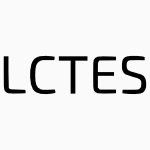API
application programming interface
 API
API
 Q165194
Q165194

 Programmierschnittstelle
Programmierschnittstelle

 Application programming interface
Application programming interface

 Interface de programmation
Interface de programmation

 Application programming interface
Application programming interface

 API
API
application programming interface
 API
API Q165194
Q165194
 Programmierschnittstelle
Programmierschnittstelle
 Application programming interface
Application programming interface
 Interface de programmation
Interface de programmation
 Application programming interface
Application programming interface
 API
APITag #api
310 papers:
 CGO-2020-KrugerAB #generative #named
CGO-2020-KrugerAB #generative #named- CogniCryptGEN: generating code for the secure usage of crypto APIs (SK, KA0, EB), pp. 185–198.
 ICPC-2019-XuDM #migration #named
ICPC-2019-XuDM #migration #named- Meditor: inference and application of API migration edits (SX, ZD, NM), pp. 335–346.
 ICSME-2019-HosonoTMWHNSFMN #web
ICSME-2019-HosonoTMWHNSFMN #web- Inappropriate Usage Examples in Web API Documentations (MH, ST, SM, HW, KH, HN, HS, YF, KM, TN, YN), pp. 343–347.
 ICSME-2019-JinCX #developer #question #what
ICSME-2019-JinCX #developer #question #what- What Do Developers Discuss about Biometric APIs? (ZJ, KYC, XX0), pp. 348–352.
 ICSME-2019-ThungKJ0 #android #generative #towards
ICSME-2019-ThungKJ0 #android #generative #towards- Towards Generating Transformation Rules without Examples for Android API Replacement (FT, HJK, LJ, DL0), pp. 213–217.
 MSR-2019-MatosFR #case study
MSR-2019-MatosFR #case study- Splitting APIs: an exploratory study of software unbundling (ASM, JBFF, LSR), pp. 360–370.
 MSR-2019-ScalabrinoBLLO #android #data-driven #detection #empirical
MSR-2019-ScalabrinoBLLO #android #data-driven #detection #empirical- Data-driven solutions to detect API compatibility issues in Android: an empirical study (SS, GB, MLV, ML, RO), pp. 288–298.
 MSR-2019-WangPWZ #developer
MSR-2019-WangPWZ #developer- Extracting API tips from developer question and answer websites (SW0, NP, YW, YZ), pp. 321–332.
 SANER-2019-ChenYYZ #approach #documentation #integration
SANER-2019-ChenYYZ #approach #documentation #integration- A Human-as-Sensors Approach to API Documentation Integration and Its Effects on Novice Programmers (CC, YY, LY, KZ), pp. 197–206.
- IFM-2019-HodovanV0 #fuzzing #javascript
- Fuzzing JavaScript Environment APIs with Interdependent Function Calls (RH, DV, ÁK0), pp. 212–226.
 ECOOP-2019-GilR #generative
ECOOP-2019-GilR #generative- Fling - A Fluent API Generator (YG, OR), p. 25.
 OOPSLA-2019-YamazakiNIC #generative #lr #syntax
OOPSLA-2019-YamazakiNIC #generative #lr #syntax- Generating a fluent API with syntax checking from an LR grammar (TY, TN, KI, SC), p. 24.
 PLDI-2019-EberhardtSRV #alias #learning #specification
PLDI-2019-EberhardtSRV #alias #learning #specification- Unsupervised learning of API aliasing specifications (JE, SS, VR, MTV), pp. 745–759.
 POPL-2019-CastroHJNY #communication #distributed #parametricity #programming #static typing #using
POPL-2019-CastroHJNY #communication #distributed #parametricity #programming #static typing #using- Distributed programming using role-parametric session types in go: statically-typed endpoint APIs for dynamically-instantiated communication structures (DCP, RH, SSJ, NN, NY), p. 30.
 ASE-2019-Gu00 #approach #graph #kernel #named
ASE-2019-Gu00 #approach #graph #kernel #named- CodeKernel: A Graph Kernel Based Approach to the Selection of API Usage Examples (XG, HZ0, SK0), pp. 590–601.
 ASE-2019-NafiKRRS #clone detection #detection #documentation #named #using
ASE-2019-NafiKRRS #clone detection #detection #documentation #named #using- CLCDSA: Cross Language Code Clone Detection using Syntactical Features and API Documentation (KWN, TSK, BR, CKR, KAS), pp. 1026–1037.
 ASE-2019-Nam #design
ASE-2019-Nam #design- API Design Implications of Boilerplate Client Code (DN), pp. 1253–1255.
 ASE-2019-NamHMMV #identification #mining #named #problem #usability
ASE-2019-NamHMMV #identification #mining #named #problem #usability- MARBLE: Mining for Boilerplate Code to Identify API Usability Problems (DN, AH, AM, BAM, BV), pp. 615–627.
 ASE-2019-SaifullahAR #learning
ASE-2019-SaifullahAR #learning- Learning from Examples to Find Fully Qualified Names of API Elements in Code Snippets (CMKS, MA, CKR), pp. 243–254.
 ASE-2019-TaoTLXQ #data analysis #how #performance #question #runtime
ASE-2019-TaoTLXQ #data analysis #how #performance #question #runtime- How Do API Selections Affect the Runtime Performance of Data Analytics Tasks? (YT, ST, YL, ZX, SQ), pp. 665–668.
 ESEC-FSE-2019-Abid #recommendation
ESEC-FSE-2019-Abid #recommendation- Recommending related functions from API usage-based function clone structures (SA), pp. 1193–1195.
 ESEC-FSE-2019-BuiYJ #learning #named
ESEC-FSE-2019-BuiYJ #learning #named- SAR: learning cross-language API mappings with little knowledge (NDQB, YY, LJ), pp. 796–806.
 ESEC-FSE-2019-CaiWH0X0 #named #recommendation
ESEC-FSE-2019-CaiWH0X0 #named #recommendation- BIKER: a tool for Bi-information source based API method recommendation (LC, HW, QH, XX0, ZX, DL0), pp. 1075–1079.
 ESEC-FSE-2019-FucciMM #documentation #identification #machine learning #on the #using
ESEC-FSE-2019-FucciMM #documentation #identification #machine learning #on the #using- On using machine learning to identify knowledge in API reference documentation (DF, AM, WM), pp. 109–119.
 ESEC-FSE-2019-Gamez-Diaz0R #ecosystem
ESEC-FSE-2019-Gamez-Diaz0R #ecosystem- Governify for APIs: SLA-driven ecosystem for API governance (AGD, PF0, ARC), pp. 1120–1123.
 ESEC-FSE-2019-Gamez-Diaz0RMKB #industrial
ESEC-FSE-2019-Gamez-Diaz0RMKB #industrial- The role of limitations and SLAs in the API industry (AGD, PF0, ARC, PJM, NK, PB, MM, FM), pp. 1006–1014.
 ESEC-FSE-2019-Liu0MXXXL #generative #summary
ESEC-FSE-2019-Liu0MXXXL #generative #summary- Generating query-specific class API summaries (ML, XP0, AM, ZX, WX, SX, YL), pp. 120–130.
 ESEC-FSE-2019-PontesGSGR #java
ESEC-FSE-2019-PontesGSGR #java- Java reflection API: revealing the dark side of the mirror (FP, RG, SS, AG, MR), pp. 636–646.
- ICSE-2019-AtlidakisGP #fuzzing #named #rest
- RESTler: stateful REST API fuzzing (VA, PG, MP), pp. 748–758.
- ICSE-2019-HuangGLLQC0 #java #named #safety
- SafeCheck: safety enhancement of Java unsafe API (SH, JG, SL, XL, YQ, KC, JH0), pp. 889–899.
- ICSE-2019-NguyenRRODP #mining #named #recommendation
- FOCUS: a recommender system for mining API function calls and usage patterns (PTN, JDR, DDR, LO, TD, MDP), pp. 1050–1060.
- ICSE-2019-WenLWXCS #analysis #library #mutation testing
- Exposing library API misuses via mutation analysis (MW, YL, RW, XX, SCC, ZS), pp. 866–877.
 FASE-2019-PonzioBPAF #automation #identification
FASE-2019-PonzioBPAF #automation #identification- Automatically Identifying Sufficient Object Builders from Module APIs (PP, VSB, MP, NA, MFF), pp. 427–444.
 ICPC-2018-HartelAL #classification #clustering
ICPC-2018-HartelAL #classification #clustering- Classification of APIs by hierarchical clustering (JH, HA, RL), pp. 233–243.
 ICPC-2018-ShatnawiSSASS #component #dynamic analysis #identification #object-oriented
ICPC-2018-ShatnawiSSASS #component #dynamic analysis #identification #object-oriented- Identifying software components from object-oriented APIs based on dynamic analysis (AS, HS, MAS, ZA, HAS, AS), pp. 189–199.
 ICSME-2018-AghajaniNBL #empirical #scalability
ICSME-2018-AghajaniNBL #empirical #scalability- A Large-Scale Empirical Study on Linguistic Antipatterns Affecting APIs (EA, CN0, GB, ML), pp. 25–35.
 ICSME-2018-KwonACSKS #case study #evolution #experience #maintenance #platform
ICSME-2018-KwonACSKS #case study #evolution #experience #maintenance #platform- An Experience Report of the API Evolution and Maintenance for Software Platforms (HK, JA, SC, JS, PK, PS), pp. 587–590.
 ICSME-2018-LiLSXPLZ #graph #mining
ICSME-2018-LiLSXPLZ #graph #mining- Improving API Caveats Accessibility by Mining API Caveats Knowledge Graph (HL, SL, JS, ZX, XP0, ML, XZ), pp. 183–193.
 ICSME-2018-NguyenRNPKN #statistics
ICSME-2018-NguyenRNPKN #statistics- Statistical Translation of English Texts to API Code Templates (AN, PCR, TVN, DP, MK, TNN), pp. 194–205.
 ICSME-2018-RahmanR18a #code search #crowdsourcing #data analysis #named #query #using
ICSME-2018-RahmanR18a #code search #crowdsourcing #data analysis #named #query #using- NLP2API: Query Reformulation for Code Search Using Crowdsourced Knowledge and Extra-Large Data Analytics (MMR0, CKR), p. 714.
 MSR-2018-LamotheS08 #android #automation #case study #experience #migration #using
MSR-2018-LamotheS08 #android #automation #case study #experience #migration #using- Exploring the use of automated API migrating techniques in practice: an experience report on Android (ML, WS), pp. 503–514.
 MSR-2018-LiGBMXK #android
MSR-2018-LiGBMXK #android- Characterising deprecated Android APIs (LL0, JG, TFB, LM0, XX0, JK), pp. 254–264.
 MSR-2018-SanchezBNPK08 #named
MSR-2018-SanchezBNPK08 #named- Restmule: enabling resilient clients for remote APIs (BAS, KB, PN, RFP, DSK), pp. 537–541.
 MSR-2018-YangWYDT08 #documentation #specification #towards #web
MSR-2018-YangWYDT08 #documentation #specification #towards #web- Towards extracting web API specifications from documentation (JY0, EW, ATTY, JD, LT0), pp. 454–464.
 SANER-2018-AhasanuzzamanAR #stack overflow
SANER-2018-AhasanuzzamanAR #stack overflow- Classifying stack overflow posts on API issues (MA, MA, CKR, KAS), pp. 244–254.
 SANER-2018-BritoXHV #developer #how #java #why
SANER-2018-BritoXHV #developer #how #java #why- Why and how Java developers break APIs (AB, LX, ACH, MTV), pp. 255–265.
 SANER-2018-BritoXHV18a #detection #named
SANER-2018-BritoXHV18a #detection #named- APIDiff: Detecting API breaking changes (AB, LX, ACH, MTV), pp. 507–511.
 SANER-2018-HossainVHKJS #mining
SANER-2018-HossainVHKJS #mining- Mining accurate message formats for service APIs (MAH, SV, JH0, MAK, JJ, JGS), pp. 266–276.
 SCAM-2018-NafiRRS #detection #documentation #research #similarity #using
SCAM-2018-NafiRRS #detection #documentation #research #similarity #using- [Research Paper] CroLSim: Cross Language Software Similarity Detector Using API Documentation (KWN, BR, CKR, KAS), pp. 139–148.
 ECOOP-2018-KrugerS0BM #approach #encryption #named #validation
ECOOP-2018-KrugerS0BM #approach #encryption #named #validation- CrySL: An Extensible Approach to Validating the Correct Usage of Cryptographic APIs (SK, JS, KA0, EB, MM), p. 27.
 PEPM-2018-MitchellBLK #composition #encryption
PEPM-2018-MitchellBLK #composition #encryption- Checking cryptographic API usage with composable annotations (short paper) (DM, LTvB, BL, JK), pp. 53–59.
 PLDI-2018-PaletovTRV
PLDI-2018-PaletovTRV - Inferring crypto API rules from code changes (RP, PT, VR, MTV), pp. 450–464.
 ASE-2018-HuangXXLW #recommendation
ASE-2018-HuangXXLW #recommendation- API method recommendation without worrying about the task-API knowledge gap (QH, XX0, ZX, DL0, XW0), pp. 293–304.
 ASE-2018-LiuHN #effectiveness #recommendation #repository
ASE-2018-LiuHN #effectiveness #recommendation #repository- Effective API recommendation without historical software repositories (XL, LH, VN), pp. 282–292.
 ESEC-FSE-2018-NguyenTPNT0NN #representation #retrieval
ESEC-FSE-2018-NguyenTPNT0NN #representation #retrieval- Complementing global and local contexts in representing API descriptions to improve API retrieval tasks (TVN, NMT, HP, TDN, LHT, ATN0, HAN, TNN), pp. 551–562.
 ESEC-FSE-2018-Reinhardt0MK #git #stack overflow
ESEC-FSE-2018-Reinhardt0MK #git #stack overflow- Augmenting stack overflow with API usage patterns mined from GitHub (AR, TZ0, MM, MK), pp. 880–883.
- ICSE-2018-0001URRK #case study #online #reliability #stack overflow
- Are code examples on an online Q&A forum reliable?: a study of API misuse on stack overflow (TZ0, GU, AR, HR, MK), pp. 886–896.
- ICSE-2018-HeadSMK #c++ #documentation #trade-off
- When not to comment: questions and tradeoffs with API documentation for C++ projects (AH, CS, ERMH, AK), pp. 643–653.
- ICSE-2018-PhanNTTNN #learning #online #statistics
- Statistical learning of API fully qualified names in code snippets of online forums (HP, HAN, NMT, LHT, ATN0, TNN), pp. 632–642.
- ICSE-2018-SeguraPTC #rest #testing #web
- Metamorphic testing of RESTful web APIs (SS, JAP, JT, ARC), p. 882.
 ASPLOS-2018-GinsbachRSBDO #approach #automation #legacy
ASPLOS-2018-GinsbachRSBDO #approach #automation #legacy- Automatic Matching of Legacy Code to Heterogeneous APIs: An Idiomatic Approach (PG, TR, MS, BB, CD, MFPO), pp. 139–153.
 CC-2018-NeykovaHYA #distributed #f# #generative #protocol
CC-2018-NeykovaHYA #distributed #f# #generative #protocol- A session type provider: compile-time API generation of distributed protocols with refinements in F# (RN, RH, NY, FA), pp. 128–138.
 FASE-2018-KatirtzisDS #clustering #using
FASE-2018-KatirtzisDS #clustering #using- Summarizing Software API Usage Examples Using Clustering Techniques (NK, TD, CAS), pp. 189–206.
 ICST-2018-YangHWK #named #sequence
ICST-2018-YangHWK #named #sequence- EdSynth: Synthesizing API Sequences with Conditionals and Loops (ZY, JH, KW, SK), pp. 161–171.
 ICSA-2017-HauptLSV #analysis #framework #rest
ICSA-2017-HauptLSV #analysis #framework #rest- A Framework for the Structural Analysis of REST APIs (FH, FL, AS, KVH), pp. 55–58.
 JCDL-2017-KaradkarAB #library
JCDL-2017-KaradkarAB #library- Introduction to the Digital Public Library of America API (UPK, AA, MB), pp. 344–345.
 ICPC-2017-JiangAMZM #named
ICPC-2017-JiangAMZM #named- Docio: documenting API input/output examples (SJ, AA, CM, QZ, RAM), pp. 364–367.
 ICSME-2017-LeuenbergerOGN #named
ICSME-2017-LeuenbergerOGN #named- KOWALSKI: Collecting API Clients in Easy Mode (ML, HO, MG, ON), pp. 653–657.
 SANER-2017-XavierBHV #impact analysis #scalability
SANER-2017-XavierBHV #impact analysis #scalability- Historical and impact analysis of API breaking changes: A large-scale study (LX, AB, ACH, MTV), pp. 138–147.
 SANER-2017-XavierHV #developer #why
SANER-2017-XavierHV #developer #why- Why do we break APIs? First answers from developers (LX, ACH, MTV), pp. 392–396.
 SEFM-2017-LiuW #named #program analysis
SEFM-2017-LiuW #named #program analysis- IJIT: An API for Boolean Program Analysis with Just-in-Time Translation (PL, TW), pp. 316–331.
 CIKM-2017-SuAKPGE #natural language #web
CIKM-2017-SuAKPGE #natural language #web- Building Natural Language Interfaces to Web APIs (YS0, AHA, MK, PP, MG, MJE), pp. 177–186.
 ECMFA-2017-Ed-DouibiIC #specification #web
ECMFA-2017-Ed-DouibiIC #specification #web- Example-Driven Web API Specification Discovery (HED, JLCI, JC), pp. 267–284.
 Onward-2017-VaziriMSSH #chat #generative #specification #web
Onward-2017-VaziriMSSH #chat #generative #specification #web- Generating chat bots from web API specifications (MV, LM, AS, JS, MH), pp. 44–57.
 AdaEurope-2017-Mosteo #ada #implementation #named
AdaEurope-2017-Mosteo #ada #implementation #named- RxAda: An Ada implementation of the ReactiveX API (ARM), pp. 153–166.
 PADL-2017-Vennekens #declarative #learning #programming #python
PADL-2017-Vennekens #declarative #learning #programming #python- Lowering the Learning Curve for Declarative Programming: A Python API for the IDP System (JV), pp. 86–102.
 PLDI-2017-YessenovKS #named
PLDI-2017-YessenovKS #named- DemoMatch: API discovery from demonstrations (KY, IK, ASL), pp. 64–78.
 POPL-2017-FengM0DR #component #synthesis
POPL-2017-FengM0DR #component #synthesis- Component-based synthesis for complex APIs (YF, RM, YW0, ID, TWR), pp. 599–612.
 ASE-2017-TianTSL #documentation #named
ASE-2017-TianTSL #documentation #named- APIBot: question answering bot for API documentation (YT0, FT, AS0, DL0), pp. 153–158.
 ASE-2017-UddinK #automation #summary
ASE-2017-UddinK #automation #summary- Automatic summarization of API reviews (GU, FK), pp. 159–170.
 ASE-2017-UddinK17a #named #summary
ASE-2017-UddinK17a #named #summary- Opiner: an opinion search and summarization engine for APIs (GU, FK), pp. 978–983.
 ASE-2017-ZamaniradBBC0 #natural language #programming
ASE-2017-ZamaniradBBC0 #natural language #programming- Programming bots by synthesizing natural language expressions into API invocations (SZ, BB, MCB, FC, CR0), pp. 832–837.
 ESEC-FSE-2017-MuraliCJ #fault #learning #specification
ESEC-FSE-2017-MuraliCJ #fault #learning #specification- Bayesian specification learning for finding API usage errors (VM, SC, CJ), pp. 151–162.
- ICSE-2017-JiangZRZ #approach #tutorial
- An unsupervised approach for discovering relevant tutorial fragments for APIs (HJ, JZ, ZR, TZ0), pp. 38–48.
- ICSE-2017-NguyenNPN
- Exploring API embedding for API usages and applications (TDN, ATN0, HDP, TNN), pp. 438–449.
- ICSE-2017-WitternYZDL #javascript #web
- Statically checking web API requests in JavaScript (EW, ATTY, YZ, JD, JAL), pp. 244–254.
- ICSE-2017-ZhouGCHPG #detection #documentation #fault
- Analyzing APIs documentation and code to detect directive defects (YZ0, RG, TC, ZH, SP, HCG), pp. 27–37.
 GPCE-2017-NakamaruIYC #generative #named
GPCE-2017-NakamaruIYC #generative #named- Silverchain: a fluent API generator (TN, KI, TY, SC), pp. 199–211.
 ICST-2017-Al-QahtaniER #approach #modelling #ontology #security #semantics #traceability
ICST-2017-Al-QahtaniER #approach #modelling #ontology #security #semantics #traceability- Recovering Semantic Traceability Links between APIs and Security Vulnerabilities: An Ontological Modeling Approach (SSAQ, EEE, JR), pp. 80–91.
 ICST-2017-ArcuriFJ #automation #functional #generative #testing
ICST-2017-ArcuriFJ #automation #functional #generative #testing- Private API Access and Functional Mocking in Automated Unit Test Generation (AA, GF, RJ), pp. 126–137.
 ICST-2017-ArthoGRBMKHTY #modelling #testing
ICST-2017-ArthoGRBMKHTY #modelling #testing- Model-Based API Testing of Apache ZooKeeper (CA, QG, GR, KB, LM0, TK, MH, YT, MY), pp. 288–298.
 ECSA-2016-AbukwaikAR #analysis #automation #concept #constraints #documentation #identification #towards
ECSA-2016-AbukwaikAR #analysis #automation #concept #constraints #documentation #identification #towards- Towards Seamless Analysis of Software Interoperability: Automatic Identification of Conceptual Constraints in API Documentation (HA, MA, HDR), pp. 67–83.
 JCDL-2016-KaradkarABM #library
JCDL-2016-KaradkarABM #library- Introduction to the Digital Public Library of America API (UPK, AA, MB, MAM), pp. 285–286.
 ICPC-2016-SaiedS #approach #mining
ICPC-2016-SaiedS #approach #mining- A cooperative approach for combining client-based and library-based API usage pattern mining (MAS, HAS), pp. 1–10.
 ICSME-2016-0029BTK #android #empirical
ICSME-2016-0029BTK #android #empirical- Accessing Inaccessible Android APIs: An Empirical Study (LL0, TFB, YLT, JK), pp. 411–422.
 ICSME-2016-PanditaTWT #constraints #named #natural language
ICSME-2016-PanditaTWT #constraints #named #natural language- ICON: Inferring Temporal Constraints from Natural Language API Descriptions (RP, KT, LW, TT), pp. 378–388.
 ICSME-2016-SawantRB #java #on the
ICSME-2016-SawantRB #java #on the- On the Reaction to Deprecation of 25, 357 Clients of 4+1 Popular Java APIs (AAS, RR, AB), pp. 400–410.
 ICSME-2016-YeXFLK #learning #natural language
ICSME-2016-YeXFLK #learning #natural language- Learning to Extract API Mentions from Informal Natural Language Discussions (DY, ZX, CYF, JL0, NK), pp. 389–399.
 SANER-2016-0029BKT16a #android #case study #parametricity
SANER-2016-0029BKT16a #android #case study #parametricity- Parameter Values of Android APIs: A Preliminary Study on 100, 000 Apps (LL0, TFB, JK, YLT), pp. 584–588.
 SANER-2016-BritoHVR #analysis #developer #java #scalability
SANER-2016-BritoHVR #analysis #developer #java #scalability- Do Developers Deprecate APIs with Replacement Messages? A Large-Scale Analysis on Java Systems (GB, ACH, MTV, RR), pp. 360–369.
 SANER-2016-JiangZLRL #tutorial
SANER-2016-JiangZLRL #tutorial- A More Accurate Model for Finding Tutorial Segments Explaining APIs (HJ, JZ, XL, ZR, DL0), pp. 157–167.
 SANER-2016-RadevskiHM #metric #towards
SANER-2016-RadevskiHM #metric #towards- Towards Building API Usage Example Metrics (SR, HH, KiM), pp. 619–623.
 SANER-2016-RahmanRL #automation #crowdsourcing #named #recommendation #using
SANER-2016-RahmanRL #automation #crowdsourcing #named #recommendation #using- RACK: Automatic API Recommendation Using Crowdsourced Knowledge (MMR0, CKR, DL0), pp. 349–359.
 SCAM-2016-DSouzaYL #python #recommendation
SCAM-2016-DSouzaYL #python #recommendation- Collective Intelligence for Smarter API Recommendations in Python (ARD, DY, CVL), pp. 51–60.
- IFM-2016-Hodovan0 #fuzzing #javascript
- Fuzzing JavaScript Engine APIs (RH, ÁK0), pp. 425–438.
 CIKM-2016-VesdapuntG #graph #social
CIKM-2016-VesdapuntG #graph #social- Updating an Existing Social Graph Snapshot via a Limited API (NV, HGM), pp. 1693–1702.
 ECMFA-2016-ScheidgenEM #case study #library #metamodelling #metaprogramming #rest
ECMFA-2016-ScheidgenEM #case study #library #metamodelling #metaprogramming #rest- Metamodeling vs Metaprogramming: A Case Study on Developing Client Libraries for REST APIs (MS, SE, FM), pp. 205–216.
 ECOOP-2016-WangJLXLZH #source code
ECOOP-2016-WangJLXLZH #source code- Transforming Programs between APIs with Many-to-Many Mappings (CW, JJ, JL, YX, XL, LZ0, ZH), p. 26.
 ASE-2016-KangRJ #automation #c #fault #named #specification
ASE-2016-KangRJ #automation #c #fault #named #specification- APEx: automated inference of error specifications for C APIs (YJK, BR, SJ), pp. 472–482.
 ASE-2016-LegunsenHXRM #case study #effectiveness #how #java #specification
ASE-2016-LegunsenHXRM #case study #effectiveness #how #java #specification- How good are the specs? a study of the bug-finding effectiveness of existing Java API specifications (OL, WUH, XX, GR, DM), pp. 602–613.
 ASE-2016-LinZCZ #detection #java #named
ASE-2016-LinZCZ #detection #java #named- LockPeeker: detecting latent locks in Java APIs (ZL, HZ, YC, JZ), pp. 368–378.
 ASE-2016-Thung #development #recommendation
ASE-2016-Thung #development #recommendation- API recommendation system for software development (FT), pp. 896–899.
 FSE-2016-BogartKHT #community #ecosystem #how
FSE-2016-BogartKHT #community #ecosystem #how- How to break an API: cost negotiation and community values in three software ecosystems (CB, CK, JDH, FT), pp. 109–120.
 FSE-2016-FowkesS #git #mining #probability
FSE-2016-FowkesS #git #mining #probability- Parameter-free probabilistic API mining across GitHub (JMF, CAS), pp. 254–265.
 FSE-2016-GuZZK #learning
FSE-2016-GuZZK #learning- Deep API learning (XG, HZ0, DZ, SK0), pp. 631–642.
 FSE-2016-GyoriLSLM #debugging #detection #java #named #specification
FSE-2016-GyoriLSLM #debugging #detection #java #named #specification- NonDex: a tool for detecting and debugging wrong assumptions on Java API specifications (AG, BL, AS, OL, DM), pp. 993–997.
 FSE-2016-Huang16a #invariant #java
FSE-2016-Huang16a #invariant #java- Discovering additional violations of Java API invariants (WH), pp. 1145–1147.
 FSE-2016-NguyenHCNMRND #fine-grained #learning #recommendation #statistics #using
FSE-2016-NguyenHCNMRND #fine-grained #learning #recommendation #statistics #using- API code recommendation using statistical learning from fine-grained changes (ATN0, MH, MC, HAN, LM, ER, TNN, DD), pp. 511–522.
 FSE-2016-NguyenRNKN #named #statistics
FSE-2016-NguyenRNKN #named #statistics- T2API: synthesizing API code usage templates from English texts with statistical translation (TVN, PCR, ATN0, MK, TNN), pp. 1013–1017.
 FSE-2016-ZhouW #analysis #detection #web
FSE-2016-ZhouW #analysis #detection #web- API deprecation: a retrospective analysis and detection method for code examples on the web (JZ, RJW), pp. 266–277.
- ICSE-2016-NadiKMB #developer #encryption #java #question #why
- Jumping through hoops: why do Java developers struggle with cryptography APIs? (SN, SK, MM, EB), pp. 935–946.
- ICSE-2016-NguyenPVN #approach #bytecode #learning #statistics
- Learning API usages from bytecode: a statistical approach (TTN, HVP, PMV, TTN), pp. 416–427.
- ICSE-2016-TreudeR #documentation #stack overflow
- Augmenting API documentation with insights from stack overflow (CT, MPR), pp. 392–403.
- ICSE-2016-ZhaiHMZTZQ #automation #documentation #generative #java
- Automatic model generation from documentation for Java API functions (JZ, JH0, SM, XZ0, LT0, JZ, FQ), pp. 380–391.
 FASE-2016-HuY #generative #hybrid #verification
FASE-2016-HuY #generative #hybrid #verification- Hybrid Session Verification Through Endpoint API Generation (RH, NY), pp. 401–418.
 WICSA-2015-HauptLP #approach #modelling #rest
WICSA-2015-HauptLP #approach #modelling #rest- A Conversation Based Approach for Modeling REST APIs (FH, FL, CP), pp. 165–174.
 ICPC-2015-SaiedABS #library #question #source code #using
ICPC-2015-SaiedABS #library #question #source code #using- Could we infer unordered API usage patterns only using the library source code? (MAS, HA, OB, HAS), pp. 71–81.
 ICPC-2015-SunshineHA #protocol #usability
ICPC-2015-SunshineHA #protocol #usability- Searching the state space: a qualitative study of API protocol usability (JS, JDH, JA), pp. 82–93.
 ICSME-2015-AsaduzzamanRMS #parametricity #recommendation
ICSME-2015-AsaduzzamanRMS #parametricity #recommendation- Exploring API method parameter recommendations (MA, CKR, SM, KAS), pp. 271–280.
 ICSME-2015-AsaduzzamanRS #named #parametricity #recommendation
ICSME-2015-AsaduzzamanRS #named #parametricity #recommendation- PARC: Recommending API methods parameters (MA, CKR, KAS), pp. 330–332.
 ICSME-2015-HoraRAEDV #developer #ecosystem #evolution #how #smalltalk
ICSME-2015-HoraRAEDV #developer #ecosystem #evolution #how #smalltalk- How do developers react to API evolution? The Pharo ecosystem case (AH, RR, NA, AE, SD, MTV), pp. 251–260.
 ICSME-2015-HoraV #migration #named
ICSME-2015-HoraV #migration #named- Apiwave: Keeping track of API popularity and migration (AH, MTV), pp. 321–323.
 MSR-2015-SawantB #dataset
MSR-2015-SawantB #dataset- A Dataset for API Usage (AAS, AB), pp. 506–509.
 MSR-2015-WangMG #developer #recommendation
MSR-2015-WangMG #developer #recommendation- Recommending Posts concerning API Issues in Developer Q&A Sites (WW, HM, MWG), pp. 224–234.
 SANER-2015-SaiedBAS #mining #multi
SANER-2015-SaiedBAS #mining #multi- Mining Multi-level API Usage Patterns (MAS, OB, HA, HAS), pp. 23–32.
 SANER-2015-SaiedSD #constraints #documentation
SANER-2015-SaiedSD #constraints #documentation- An observational study on API usage constraints and their documentation (MAS, HAS, BD), pp. 33–42.
 SCAM-2015-PanditaJSW #mining #using
SCAM-2015-PanditaJSW #mining #using- Discovering likely mappings between APIs using text mining (RP, RPJ, SDS, LAW), pp. 231–240.
 FDG-2015-ChauNSP #concept #education #game studies #programming
FDG-2015-ChauNSP #concept #education #game studies #programming- Building Casual Games and APIs for Teaching Introductory Programming Concepts (BC, RN, KS, JP).
 LCT-2015-KaprosP #education #guidelines #usability
LCT-2015-KaprosP #education #guidelines #usability- Usability of Educational Technology APIs: Findings and Guidelines (EK, NP), pp. 249–260.
 CIKM-2015-ChaeKCK #detection #named
CIKM-2015-ChaeKCK #detection #named- DAAV: Dynamic API Authority Vectors for Detecting Software Theft (DKC, SWK, SjC, YK), pp. 1819–1822.
 SEKE-2015-ChenZWQJW #mining #protocol
SEKE-2015-ChenZWQJW #mining #protocol- Extracting More Object Usage Scenarios for API Protocol Mining (DC, YZ, RW, BQ, JJ, WW), pp. 607–612.
 MoDELS-2015-SchottleK #modelling #reuse #using
MoDELS-2015-SchottleK #modelling #reuse #using- Concern-oriented interfaces for model-based reuse of APIs (MS, JK), pp. 286–291.
 OOPSLA-2015-MastrangeloPMLH #java
OOPSLA-2015-MastrangeloPMLH #java- Use at your own risk: the Java unsafe API in the wild (LM, LP, AM, ML, MH, NN), pp. 695–710.
 PEPM-2015-LiWXH #adaptation #java #named #towards #type safety
PEPM-2015-LiWXH #adaptation #java #named #towards #type safety- SWIN: Towards Type-Safe Java Program Adaptation between APIs (JL, CW, YX, ZH), pp. 91–102.
 ASE-2015-ArthoSGCKMRY #modelling #testing
ASE-2015-ArthoSGCKMRY #modelling #testing- Model-Based Testing of Stateful APIs with Modbat (CA, MS, QG, EHC, TK, AM, RR, YY), pp. 858–863.
 ASE-2015-LvZLWZZ #code search #comprehension #effectiveness #named
ASE-2015-LvZLWZZ #code search #comprehension #effectiveness #named- CodeHow: Effective Code Search Based on API Understanding and Extended Boolean Model (E) (FL, HZ, JGL, SW, DZ, JZ), pp. 260–270.
 ASE-2015-NguyenPVN #markov #mobile #recommendation
ASE-2015-NguyenPVN #markov #mobile #recommendation- Recommending API Usages for Mobile Apps with Hidden Markov Model (TTN, HVP, PMV, TTN), pp. 795–800.
 ASE-2015-SohanAM #automation #documentation #named #rest #using
ASE-2015-SohanAM #automation #documentation #named #rest #using- SpyREST: Automated RESTful API Documentation Using an HTTP Proxy Server (N) (SMS, CA, FM), pp. 271–276.
 ASE-2015-SohanAM15a #automation #documentation #rest
ASE-2015-SohanAM15a #automation #documentation #rest- SpyREST in Action: An Automated RESTful API Documentation Tool (SMS, CA, FM), pp. 813–818.
 ESEC-FSE-2015-KimNYCK #fault #named #performance #predict #testing
ESEC-FSE-2015-KimNYCK #fault #named #performance #predict #testing- REMI: defect prediction for efficient API testing (MK, JN, JY, SC, SK), pp. 990–993.
 ICSE-v1-2015-PetrosyanRM #classification #information management #using
ICSE-v1-2015-PetrosyanRM #classification #information management #using- Discovering Information Explaining API Types Using Text Classification (GP, MPR, RDM), pp. 869–879.
 ICSE-v2-2015-Beyer #developer #mobile #named #recommendation
ICSE-v2-2015-Beyer #developer #mobile #named #recommendation- DIETs: Recommender Systems for Mobile API Developers (SB), pp. 859–862.
 GPCE-2015-ReyndersDP #bound #generative
GPCE-2015-ReyndersDP #bound #generative- Generating safe boundary APIs between typed EDSLs and their environments (BR, DD, FP), pp. 31–34.
 CASE-2015-SundarkumarRNG #detection #machine learning #modelling #topic
CASE-2015-SundarkumarRNG #detection #machine learning #modelling #topic- Malware detection via API calls, topic models and machine learning (GGS, VR, IN, VG), pp. 1212–1217.
 SAT-2015-LonsingE #incremental #satisfiability
SAT-2015-LonsingE #incremental #satisfiability- Incrementally Computing Minimal Unsatisfiable Cores of QBFs via a Clause Group Solver API (FL, UE), pp. 191–198.
 CSMR-WCRE-2014-EspinhaZG #developer #web
CSMR-WCRE-2014-EspinhaZG #developer #web- Web API growing pains: Stories from client developers and their code (TE, AZ, HGG), pp. 84–93.
 CSMR-WCRE-2014-HoraEADV #evolution #named
CSMR-WCRE-2014-HoraEADV #evolution #named- APIEvolutionMiner: Keeping API evolution under control (AH, AE, NA, SD, MTV), pp. 420–424.
 ICPC-2014-PetersenHR #comparison #eclipse #empirical #groovy #ide #java #type system
ICPC-2014-PetersenHR #comparison #eclipse #empirical #groovy #ide #java #type system- An empirical comparison of static and dynamic type systems on API usage in the presence of an IDE: Java vs. groovy with eclipse (PP, SH, RR), pp. 212–222.
 ICPC-2014-VasquezBPOP #android #case study #how #stack overflow
ICPC-2014-VasquezBPOP #android #case study #how #stack overflow- How do API changes trigger stack overflow discussions? a study on the Android SDK (MLV, GB, MDP, RO, DP), pp. 83–94.
 ICPC-2014-ZhouXLTW #categorisation #towards
ICPC-2014-ZhouXLTW #categorisation #towards- Towards more accurate content categorization of API discussions (BZ, XX, DL, CT, XW), pp. 95–105.
 ICSME-2014-AsaduzzamanRSH14a #code completion #usability
ICSME-2014-AsaduzzamanRSH14a #code completion #usability- Context-Sensitive Code Completion Tool for Better API Usability (MA, CKR, KAS, DH), pp. 621–624.
 ICSME-2014-ZhuZXJL0 #mining
ICSME-2014-ZhuZXJL0 #mining- Mining API Usage Examples from Test Code (ZZ, YZ, BX, YJ, ZL, LZ), pp. 301–310.
 MSR-2014-VasquezBBOPP #android #empirical #energy #mining
MSR-2014-VasquezBBOPP #android #empirical #energy #mining- Mining energy-greedy API usage patterns in Android apps: an empirical study (MLV, GB, CBC, RO, MDP, DP), pp. 2–11.
 SCAM-2014-WuAGA #named
SCAM-2014-WuAGA #named- ACUA: API Change and Usage Auditor (WW, BA, YGG, GA), pp. 89–94.
 CHI-PLAY-2014-StenersonSBS #education #game studies #named
CHI-PLAY-2014-StenersonSBS #education #game studies #named- Adage: an open API for data collection in educational games (MES, AS, MB, KS), pp. 437–438.
 CIG-2014-ScalesT #tool support
CIG-2014-ScalesT #tool support- SpelunkBots API - An AI toolset for Spelunky (DS, TT), pp. 1–8.
 ICEIS-v2-2014-BalikJ #adaptation #rest
ICEIS-v2-2014-BalikJ #adaptation #rest- RESTful User Model API for the Exchange of User’s Preferences among Adaptive Systems (MB, IJ), pp. 627–634.
 HILT-2014-BaggeH #algebra #specification #why
HILT-2014-BaggeH #algebra #specification #why- Specification of generic APIs, or: why algebraic may be better than pre/post (AHB, MH), pp. 71–80.
 ASE-2014-Kechagia #robust
ASE-2014-Kechagia #robust- Improvement of applications’ stability through robust APIs (MK), pp. 907–910.
 ASE-2014-NguyenNNN #approach #learning #migration #mining #statistics
ASE-2014-NguyenNNN #approach #learning #migration #mining #statistics- Statistical learning approach for mining API usage mappings for code migration (ATN, HAN, TTN, TNN), pp. 457–468.
 FSE-2014-BaeCLR #detection #named #web
FSE-2014-BaeCLR #detection #named #web- SAFEWAPI: web API misuse detector for web applications (SB, HC, IL, SR), pp. 507–517.
 FSE-2014-Nguyen0NR #corpus #mining #scalability
FSE-2014-Nguyen0NR #corpus #mining #scalability- Mining preconditions of APIs in large-scale code corpus (HAN, RD, TNN, HR), pp. 166–177.
 ICSE-2014-EndrikatHRS #documentation #how #question #static typing #type system #usability
ICSE-2014-EndrikatHRS #documentation #how #question #static typing #type system #usability- How do API documentation and static typing affect API usability? (SE, SH, RR, AS), pp. 632–642.
 ICSE-2014-SubramanianIH #documentation
ICSE-2014-SubramanianIH #documentation- Live API documentation (SS, LI, RH), pp. 643–652.
 SAC-2014-HedinBBS #data flow #javascript #named
SAC-2014-HedinBBS #data flow #javascript #named- JSFlow: tracking information flow in JavaScript and its APIs (DH, AB, LB, AS), pp. 1663–1671.
 FASE-2014-MoreauHM #algorithm #design #online #testing #validation
FASE-2014-MoreauHM #algorithm #design #online #testing #validation- An Online Validator for Provenance: Algorithmic Design, Testing, and API (LM, TDH, DTM), pp. 291–305.
 QoSA-2013-LuZBXLW #empirical
QoSA-2013-LuZBXLW #empirical- Cloud API issues: an empirical study and impact (QL, LZ, LB, XX, ZL, HW), pp. 23–32.
 CSMR-2013-BusingeSB #developer #eclipse
CSMR-2013-BusingeSB #developer #eclipse- Analyzing the Eclipse API Usage: Putting the Developer in the Loop (JB, AS, MvdB), pp. 37–46.
 ICPC-2013-RooverLP #multi
ICPC-2013-RooverLP #multi- Multi-dimensional exploration of API usage (CDR, RL, EP), pp. 152–161.
 ICPC-2013-ZhangH #problem
ICPC-2013-ZhangH #problem- Extracting problematic API features from forum discussions (YZ, DH), pp. 142–151.
 ICSM-2013-AsadullahMJ #enterprise #named
ICSM-2013-AsadullahMJ #enterprise #named- E-Xplore: Enterprise API Explorer (AMA, BM, NJ), pp. 524–527.
 ICSM-2013-HouM #categorisation
ICSM-2013-HouM #categorisation- Content Categorization of API Discussions (DH, LM), pp. 60–69.
 ICSM-2013-McDonnellRK #android #ecosystem #empirical
ICSM-2013-McDonnellRK #android #ecosystem #empirical- An Empirical Study of API Stability and Adoption in the Android Ecosystem (TM, BR, MK), pp. 70–79.
 MSR-2013-WangDZCXZ #mining #source code
MSR-2013-WangDZCXZ #mining #source code- Mining succinct and high-coverage API usage patterns from source code (JW, YD, HZ, KC, TX, DZ), pp. 319–328.
 MSR-2013-WangG #android #case study #detection #developer
MSR-2013-WangG #android #case study #detection #developer- Detecting API usage obstacles: a study of iOS and Android developer questions (WW, MWG), pp. 61–64.
 SCAM-2013-MendezBM #empirical #object-oriented #scalability
SCAM-2013-MendezBM #empirical #object-oriented #scalability- Empirical evidence of large-scale diversity in API usage of object-oriented software (DM, BB, MM), pp. 43–52.
 WCRE-2013-MontandonBFV #framework #lessons learnt #platform
WCRE-2013-MontandonBFV #framework #lessons learnt #platform- Documenting APIs with examples: Lessons learned with the APIMiner platform (JEM, HB, DF, MTV), pp. 401–408.
 IFM-2013-SongT #library #model checking
IFM-2013-SongT #library #model checking- Model-Checking Software Library API Usage Rules (FS, TT), pp. 192–207.
 CAiSE-2013-BianchiniAM #design #enterprise #framework #multi #web
CAiSE-2013-BianchiniAM #design #enterprise #framework #multi #web- A Multi-perspective Framework for Web API Search in Enterprise Mashup Design (DB, VDA, MM), pp. 353–368.
 ICEIS-v2-2013-TomasSGGA #approach #architecture #framework #using
ICEIS-v2-2013-TomasSGGA #approach #architecture #framework #using- Synaptic City — An Architectural Approach using an OSGI Infrastructure and GMaps API to Build a City Simulator (GHRPT, WMdS, KG, VCG, AÁ), pp. 427–434.
 OOPSLA-2013-ZhongS #detection #documentation #fault
OOPSLA-2013-ZhongS #detection #documentation #fault- Detecting API documentation errors (HZ, ZS), pp. 803–816.
 PADL-2013-CanouCB #documentation #web
PADL-2013-CanouCB #documentation #web- A Declarative-Friendly API for Web Document Manipulation (BC, EC, VB), pp. 109–124.
 ASE-2013-MoritzVPGMG #detection #named #repository #scalability #source code #visualisation
ASE-2013-MoritzVPGMG #detection #named #repository #scalability #source code #visualisation- ExPort: Detecting and visualizing API usages in large source code repositories (EM, MLV, DP, MG, CM, MG), pp. 646–651.
 ASE-2013-ThungWLL #automation #feature model #recommendation
ASE-2013-ThungWLL #automation #feature model #recommendation- Automatic recommendation of API methods from feature requests (FT, SW, DL, JLL), pp. 290–300.
 ESEC-FSE-2013-VasquezBBPOP #android #fault
ESEC-FSE-2013-VasquezBBPOP #android #fault- API change and fault proneness: a threat to the success of Android apps (MLV, GB, CBC, MDP, RO, DP), pp. 477–487.
 ICSE-2013-GokhaleGP
ICSE-2013-GokhaleGP - Inferring likely mappings between APIs (AG, VG, YP), pp. 82–91.
 SAC-2013-ChaeKHLW #detection
SAC-2013-ChaeKHLW #detection- Software plagiarism detection via the static API call frequency birthmark (DKC, SWK, JH, SCL, GW), pp. 1639–1643.
 SAC-2013-JangKRLSKPC #comparison #performance #similarity
SAC-2013-JangKRLSKPC #comparison #performance #similarity- An efficient similarity comparison based on core API calls (MJ, JK, SR, KL, SS, AK, YP, EHC), pp. 1634–1638.
 ASPLOS-2013-CheckowayS #why
ASPLOS-2013-CheckowayS #why- Iago attacks: why the system call API is a bad untrusted RPC interface (SC, HS), pp. 253–264.
 LCTES-2013-WangCSCH #embedded #manycore #using
LCTES-2013-WangCSCH #embedded #manycore #using- Portable mapping of openMP to multicore embedded systems using MCA APIs (CW, SC, PS, BMC, JH), pp. 153–162.
 PDP-2013-FangVSS #kernel #memory management #named
PDP-2013-FangVSS #kernel #memory management #named- ELMO: A User-Friendly API to Enable Local Memory in OpenCL Kernels (JF, ALV, JS, HJS), pp. 375–383.
 FASE-2013-SanthiarPK #mining #testing
FASE-2013-SanthiarPK #mining #testing- Discovering Math APIs by Mining Unit Tests (AS, OP, AK), pp. 327–342.
 FASE-2013-ZhongTX #behaviour #difference
FASE-2013-ZhongTX #behaviour #difference- Exposing Behavioral Differences in Cross-Language API Mapping Relations (HZ, ST, TX), pp. 130–145.
 CSMR-2012-BauerH #comprehension #maintenance
CSMR-2012-BauerH #comprehension #maintenance- Understanding API Usage to Support Informed Decision Making in Software Maintenance (VB, LH), pp. 435–440.
 CSMR-2012-HeinemannBHH #recommendation
CSMR-2012-HeinemannBHH #recommendation- Identifier-Based Context-Dependent API Method Recommendation (LH, VB, MH, BH), pp. 31–40.
 ICPC-2012-RupakhetiH #design
ICPC-2012-RupakhetiH #design- Evaluating forum discussions to inform the design of an API critic (CRR, DH), pp. 53–62.
 ICPC-2012-RupakhetiH12a #library #named
ICPC-2012-RupakhetiH12a #library #named- CriticAL: A critic for APIs and libraries (CRR, DH), pp. 241–243.
 ICSM-2012-Song0XS #data access
ICSM-2012-Song0XS #data access- Inferring the data access from the clients of generic APIs (HS, GH, YX, YS), pp. 388–397.
 MSR-2012-NguyenK #mutation testing #testing
MSR-2012-NguyenK #mutation testing #testing- Discovering complete API rules with mutation testing (ACN, SCK), pp. 151–160.
 SEKE-2012-DoranCG #how #network #privacy #social
SEKE-2012-DoranCG #how #network #privacy #social- How Social Network APIs Have Ended the Age of Privacy (DD, SC, SSG), pp. 400–405.
 AdaEurope-2012-ForlerLW #design #encryption #library #programming
AdaEurope-2012-ForlerLW #design #encryption #library #programming- Designing the API for a Cryptographic Library — A Misuse-Resistant Application Programming Interface (CF, SL, JW), pp. 75–88.
 ASE-2012-LiT #automation #erlang #migration #refactoring #source code
ASE-2012-LiT #automation #erlang #migration #refactoring #source code- Automated API migration in a user-extensible refactoring tool for Erlang programs (HL, SJT), pp. 294–297.
 FSE-2012-ChanCL
FSE-2012-ChanCL - Searching connected API subgraph via text phrases (WKC, HC, DL), p. 10.
 FSE-2012-RobbesLR #developer #ecosystem #how #smalltalk
FSE-2012-RobbesLR #developer #ecosystem #how #smalltalk- How do developers react to API deprecation?: the case of a smalltalk ecosystem (RR, ML, DR), p. 56.
 ICSE-2012-BuseW
ICSE-2012-BuseW - Synthesizing API usage examples (RPLB, WW), pp. 782–792.
 ICSE-2012-DagenaisR #learning #traceability
ICSE-2012-DagenaisR #learning #traceability- Recovering traceability links between an API and its learning resources (BD, MPR), pp. 47–57.
 ICSE-2012-Duala-EkokoR #case study
ICSE-2012-Duala-EkokoR #case study- Asking and answering questions about unfamiliar APIs: An exploratory study (EDE, MPR), pp. 266–276.
 ICSE-2012-PanditaXZXOP #natural language #specification
ICSE-2012-PanditaXZXOP #natural language #specification- Inferring method specifications from natural language API descriptions (RP, XX, HZ, TX, SO, AMP), pp. 815–825.
 ICSE-2012-PradelJAG #consistency #multi #protocol #specification
ICSE-2012-PradelJAG #consistency #multi #protocol #specification- Statically checking API protocol conformance with mined multi-object specifications (MP, CJ, JA, TRG), pp. 925–935.
 ICSE-2012-UddinDR #analysis #concept
ICSE-2012-UddinDR #analysis #concept- Temporal analysis of API usage concepts (GU, BD, MPR), pp. 804–814.
 ICSE-2012-ZhangYZFZZO #automation #parametricity #recommendation
ICSE-2012-ZhangYZFZZO #automation #parametricity #recommendation- Automatic parameter recommendation for practical API usage (CZ, JY, YZ, JF, XZ, JZ, PO), pp. 826–836.
 SAC-2012-DavoliG #multi #named #stack
SAC-2012-DavoliG #multi #named #stack- msocket: multiple stack support for the berkeley socket API (RD, MG), pp. 588–593.
 ITiCSE-2011-Harms #implementation #java #using
ITiCSE-2011-Harms #implementation #java #using- A Java implementation of the myro API for using personal robots in CS1 (DEH), p. 338.
 ICPC-2011-HouL #case study #framework #using
ICPC-2011-HouL #case study #framework #using- Obstacles in Using Frameworks and APIs: An Exploratory Study of Programmers’ Newsgroup Discussions (DH, LL), pp. 91–100.
 ICPC-2011-Wu #evolution #framework #modelling #multi #optimisation #problem
ICPC-2011-Wu #evolution #framework #modelling #multi #optimisation #problem- Modeling Framework API Evolution as a Multi-objective Optimization Problem (WW), pp. 262–265.
 ICSM-2011-HouP #code completion #evaluation #sorting
ICSM-2011-HouP #code completion #evaluation #sorting- An evaluation of the strategies of sorting, filtering, and grouping API methods for Code Completion (DH, DMP), pp. 233–242.
 ICSM-2011-SunKZ #detection #graph #library
ICSM-2011-SunKZ #detection #graph #library- Graph-based detection of library API imitations (CS, SCK, SJZ), pp. 183–192.
 WCRE-2011-HouY #case study #evolution
WCRE-2011-HouY #case study #evolution- Exploring the Intent behind API Evolution: A Case Study (DH, XY), pp. 131–140.
 WCRE-2011-ZibranER #usability
WCRE-2011-ZibranER #usability- Useful, But Usable? Factors Affecting the Usability of APIs (MFZ, FZE, CKR), pp. 151–155.
 CHI-2011-GerkenJZMR #concept #usability
CHI-2011-GerkenJZMR #concept #usability- The concept maps method as a tool to evaluate the usability of APIs (JG, HCJ, MZ, MM, HR), pp. 3373–3382.
 ICEIS-v1-2011-BorovskiySZK #enterprise #in memory #semantics
ICEIS-v1-2011-BorovskiySZK #enterprise #in memory #semantics- Semantically Rich API for In-database Data Manipulation in Main-memory ERP Systems (VB, CS, AZ, WK), pp. 253–260.
 SEKE-2011-DengLSW #constraints #runtime #specification #verification
SEKE-2011-DengLSW #constraints #runtime #specification #verification- Specification and Runtime Verification of API Constraints on Interacting Objects (FD, HL, JS, QW), pp. 101–106.
 ECOOP-2011-Duala-EkokoR #recommendation #using
ECOOP-2011-Duala-EkokoR #recommendation #using- Using Structure-Based Recommendations to Facilitate Discoverability in APIs (EDE, MPR), pp. 79–104.
 PADL-2011-KrajcevskiR #declarative
PADL-2011-KrajcevskiR #declarative- A Declarative API for Particle Systems (PK, JHR), pp. 130–144.
 PLDI-2011-SrivastavaBMS #detection #implementation #multi #policy #security #using
PLDI-2011-SrivastavaBMS #detection #implementation #multi #policy #security #using- A security policy oracle: detecting security holes using multiple API implementations (VS, MDB, KSM, VS), pp. 343–354.
 ASE-2011-UddinDR
ASE-2011-UddinDR - Analyzing temporal API usage patterns (GU, BD, MPR), pp. 456–459.
 ASE-2011-WangFWLXY #effectiveness #java #named #recommendation #web
ASE-2011-WangFWLXY #effectiveness #java #named #recommendation #web- APIExample: An effective web search based usage example recommendation system for java APIs (LW, LF, LW, GL, BX, FY), pp. 592–595.
 ESEC-FSE-2011-JensenMM #html #javascript #modelling #static analysis #web
ESEC-FSE-2011-JensenMM #html #javascript #modelling #static analysis #web- Modeling the HTML DOM and browser API in static analysis of JavaScript web applications (SHJ, MM, AM), pp. 59–69.
 ESEC-FSE-2011-ZhengZL #recommendation #using #web
ESEC-FSE-2011-ZhengZL #recommendation #using #web- Cross-library API recommendation using web search engines (WZ, QZ, MRL), pp. 480–483.
 SAC-2011-TsaiCHH #mobile #reduction #rest
SAC-2011-TsaiCHH #mobile #reduction #rest- Transmission reduction between mobile phone applications and RESTful APIs (CLT, HWC, JLH, CLH), pp. 445–450.
 GPCE-2011-SobernigGSZ #complexity #design #empirical #framework #integration
GPCE-2011-SobernigGSZ #complexity #design #empirical #framework #integration- Comparing complexity of API designs: an exploratory experiment on DSL-based framework integration (SS, PG, MS, UZ), pp. 157–166.
 LCTES-2011-GrayA #architecture #embedded #manycore
LCTES-2011-GrayA #architecture #embedded #manycore- Targeting complex embedded architectures by combining the multicore communications API (mcapi) with compile-time virtualisation (IG, NCA), pp. 51–60.
 SOSP-2011-MaoCZWZK #fault #multi
SOSP-2011-MaoCZWZK #fault #multi- Software fault isolation with API integrity and multi-principal modules (YM, HC, DZ, XW, NZ, MFK), pp. 115–128.
 FASE-2011-ShiZXL #documentation #empirical #evolution
FASE-2011-ShiZXL #documentation #empirical #evolution- An Empirical Study on Evolution of API Documentation (LS, HZ, TX, ML), pp. 416–431.
 FASE-2011-ZhangZL #complexity #graph
FASE-2011-ZhangZL #complexity #graph- Flow-Augmented Call Graph: A New Foundation for Taming API Complexity (QZ, WZ, MRL), pp. 386–400.
 ICSM-2010-NasehiM #testing
ICSM-2010-NasehiM #testing- Unit tests as API usage examples (SMN, FM), pp. 1–10.
 ICSM-2010-TonelliKR #migration
ICSM-2010-TonelliKR #migration- Swing to SWT and back: Patterns for API migration by wrapping (TTB, KC, RL), pp. 1–10.
 CHI-2010-EisenbergSM #named
CHI-2010-EisenbergSM #named- Apatite: a new interface for exploring APIs (DSE, JS, BAM), pp. 1331–1334.
 CHI-2010-FarooqWZ #programming #usability
CHI-2010-FarooqWZ #programming #usability- API usability peer reviews: a method for evaluating the usability of application programming interfaces (UF, LW, DZ), pp. 2327–2336.
 CSCW-2010-FarooqZ #programming #usability
CSCW-2010-FarooqZ #programming #usability- API peer reviews: a method for evaluating usability of application programming interfaces (UF, DZ), pp. 207–210.
 ICEIS-J-2010-BorovskiyKZ10a #data access #enterprise #query
ICEIS-J-2010-BorovskiyKZ10a #data access #enterprise #query- Business Object Query Language as Data Access API in ERP Systems (VB, WK, AZ), pp. 135–148.
 KEOD-2010-DucLZ #distributed #ontology #reasoning
KEOD-2010-DucLZ #distributed #ontology #reasoning- An API for Distributed Reasoning on Networked Ontologies with Alignments (CLD, ML, AZ), pp. 295–304.
 SEKE-2010-BorovskiyKZ #enterprise
SEKE-2010-BorovskiyKZ #enterprise- Data manipulation API in ERP systems (VB, WK, AZ), pp. 298–302.
 MoDELS-v2-2010-SongHXCSM #metamodelling #runtime
MoDELS-v2-2010-SongHXCSM #metamodelling #runtime- Inferring Meta-models for Runtime System Data from the Clients of Management APIs (HS, GH, YX, FC, YS, HM), pp. 168–182.
 OOPSLA-2010-NguyenNWNKN #adaptation #approach #graph
OOPSLA-2010-NguyenNWNKN #adaptation #approach #graph- A graph-based approach to API usage adaptation (HAN, TTN, GWJ, ATN, MK, TNN), pp. 302–321.
 ASE-2010-BiegelD #clone detection #detection #flexibility #implementation #named
ASE-2010-BiegelD #clone detection #detection #flexibility #implementation #named- JCCD: a flexible and extensible API for implementing custom code clone detectors (BB, SD), pp. 167–168.
 ICSE-2010-NitaN #adaptation #source code #using
ICSE-2010-NitaN #adaptation #source code #using- Using twinning to adapt programs to alternative APIs (MN, DN), pp. 205–214.
 ICSE-2010-ZhongTXZW #migration #mining
ICSE-2010-ZhongTXZW #migration #mining- Mining API mapping for language migration (HZ, ST, TX, LZ, QW), pp. 195–204.
 SAC-2010-SamiYPHH #detection #mining
SAC-2010-SamiYPHH #detection #mining- Malware detection based on mining API calls (AS, BY, HR, NP, SH, AH), pp. 1020–1025.
 HPDC-2010-LeoZ #named #pipes and filters #python
HPDC-2010-LeoZ #named #pipes and filters #python- Pydoop: a Python MapReduce and HDFS API for Hadoop (SL, GZ), pp. 819–825.
 PDP-2010-BakerHEW #manycore #programming
PDP-2010-BakerHEW #manycore #programming- A Light-weight API for Portable Multicore Programming (CGB, MAH, HCE, ABW), pp. 601–606.
 VLDB-2009-ChenLNXZMW #web
VLDB-2009-ChenLNXZMW #web- Mashup by Surfing a Web of Data APIs (HC, BL, YN, GTX, CZ, JM, ZW), pp. 1602–1605.
 ICPC-2009-DekelH #comprehension #documentation
ICPC-2009-DekelH #comprehension #documentation- Reading the documentation of invoked API functions in program comprehension (UD, JDH), pp. 168–177.
 ICSM-2009-PletcherH #code completion #named #usability
ICSM-2009-PletcherH #code completion #named #usability- BCC: Enhancing code completion for better API usability (DMP, DH), pp. 393–394.
 ECOOP-2009-BierhoffBA #protocol
ECOOP-2009-BierhoffBA #protocol- Practical API Protocol Checking with Access Permissions (KB, NEB, JA), pp. 195–219.
 ECOOP-2009-ZhongXZPM #mining #named #recommendation
ECOOP-2009-ZhongXZPM #mining #named #recommendation- MAPO: Mining and Recommending API Usage Patterns (HZ, TX, LZ, JP, HM), pp. 318–343.
 SIGAda-2009-Mentis #ada #type safety
SIGAda-2009-Mentis #ada #type safety- A robotics API dialect for type-safe robots: translating Myro to Ada (ASM), pp. 91–102.
 ASE-2009-KawrykowR #automation #detection
ASE-2009-KawrykowR #automation #detection- Improving API Usage through Automatic Detection of Redundant Code (DK, MPR), pp. 111–122.
 ASE-2009-ZhongZXM #documentation #natural language #specification
ASE-2009-ZhongZXM #documentation #natural language #specification- Inferring Resource Specifications from Natural Language API Documentation (HZ, LZ, TX, HM), pp. 307–318.
 ESEC-FSE-2009-LongWC
ESEC-FSE-2009-LongWC - Api hyperlinking via structural overlap (FL, XW, YC), pp. 203–212.
 ICSE-2009-DagenaisR #analysis #evolution #named #recommendation
ICSE-2009-DagenaisR #analysis #evolution #named #recommendation- SemDiff: Analysis and recommendation support for API evolution (BD, MPR), pp. 599–602.
 ICSE-2009-DekelH #documentation #usability
ICSE-2009-DekelH #documentation #usability- Improving API documentation usability with knowledge pushing (UD, JDH), pp. 320–330.
 SLE-2009-BartolomeiCLS #migration #xml
SLE-2009-BartolomeiCLS #migration #xml- Study of an API Migration for Two XML APIs (TTB, KC, RL, TvdS), pp. 42–61.
 SLE-2009-Jugel #generative #library
SLE-2009-Jugel #generative #library- Generating Smart Wrapper Libraries for Arbitrary APIs (UJ), pp. 354–373.
 PPoPP-2009-BhateleBK #case study
PPoPP-2009-BhateleBK #case study- Topology aware task mapping techniques: an api and case study (AB, EJB, LVK), pp. 301–302.
 FASE-2009-AcharyaX #mining #source code #specification
FASE-2009-AcharyaX #mining #source code #specification- Mining API Error-Handling Specifications from Source Code (MA, TX), pp. 370–384.
 CSMR-2008-RatiuFJ #ontology
CSMR-2008-RatiuFJ #ontology- Extracting Domain Ontologies from Domain Specific APIs (DR, MF, JJ), pp. 203–212.
 ICPC-2008-FeilkasR #constraints
ICPC-2008-FeilkasR #constraints- Ensuring Well-Behaved Usage of APIs through Syntactic Constraints (MF, DR), pp. 248–253.
 ICPC-2008-RatiuJ #concept #representation
ICPC-2008-RatiuJ #concept #representation- Evaluating the Reference and Representation of Domain Concepts in APIs (DR, JJ), pp. 242–247.
 MSR-2008-HolmesW #eclipse
MSR-2008-HolmesW #eclipse- A newbie’s guide to eclipse APIs (RH, RJW), pp. 149–152.
 ICEIS-DISI-2008-HuangG #documentation #protocol #xml
ICEIS-DISI-2008-HuangG #documentation #protocol #xml- A Locking Protocol for DOM API on XML Documents (YFH, MLG), p. 105–?.
 FSE-2008-StylosM
FSE-2008-StylosM - The implications of method placement on API learnability (JS, BAM), pp. 105–112.
 SAC-2008-KimuraG #named
SAC-2008-KimuraG #named- TIPS: wrapping the sockets API for seamless IP mobility (BYLK, HCG), pp. 1940–1945.
 CSMR-2007-SavgaRSLW #how #question
CSMR-2007-SavgaRSLW #how #question- API Changes — How Far Would You Go? (IS, MR, JŚ, JL, HW), pp. 329–330.
 ICPC-2007-JiangKRS #documentation
ICPC-2007-JiangKRS #documentation- Constructing Usage Scenarios for API Redocumentation (JJ, JK, AR, TS), pp. 259–264.
 ICEIS-DISI-2007-KraftM #independence #statistics
ICEIS-DISI-2007-KraftM #independence #statistics- Statistics API: DBMS-independent access and management of dbms statistics in heterogeneous environments (TK, BM), pp. 5–12.
 ASE-2007-TanejaDX #automation #detection #library #refactoring
ASE-2007-TanejaDX #automation #detection #library #refactoring- Automated detection of api refactorings in libraries (KT, DD, TX), pp. 377–380.
 ESEC-FSE-2007-AcharyaXPX #mining #partial order #source code #specification
ESEC-FSE-2007-AcharyaXPX #mining #partial order #source code #specification- Mining API patterns as partial orders from source code: from usage scenarios to specifications (MA, TX, JP, JX), pp. 25–34.
 ICSE-2007-EllisSM #design #evaluation #usability
ICSE-2007-EllisSM #design #evaluation #usability- The Factory Pattern in API Design: A Usability Evaluation (BE, JS, BAM), pp. 302–312.
 MSR-2006-XieP #mining #named #open source #repository
MSR-2006-XieP #mining #named #open source #repository- MAPO: mining API usages from open source repositories (TX, JP), pp. 54–57.
 ICSE-2006-YangEBBD #mining #named
ICSE-2006-YangEBBD #mining #named- Perracotta: mining temporal API rules from imperfect traces (JY, DE, DB, TB, MD), pp. 282–291.
 SAC-2006-Parsons
SAC-2006-Parsons - Extending the location API for J2ME to support friend finder services (DP), pp. 992–996.
 ITiCSE-2005-MorgadoS #interactive #multi
ITiCSE-2005-MorgadoS #interactive #multi- MIG21 API: multimedia interactive groups API (CM, LS), p. 399.
 ICSM-2005-DigJ #evolution #refactoring
ICSM-2005-DigJ #evolution #refactoring- The Role of Refactorings in API Evolution (DD, REJ), pp. 389–398.
 PASTE-2005-Perkins #automation #evolution #generative #refactoring
PASTE-2005-Perkins #automation #evolution #generative #refactoring- Automatically generating refactorings to support API evolution (JHP), pp. 111–114.
 PLDI-2005-MandelinXBK #mining
PLDI-2005-MandelinXBK #mining- Jungloid mining: helping to navigate the API jungle (DM, LX, RB, DK), pp. 48–61.
 ICSE-2005-HenkelD #evolution #exclamation #game studies #refactoring
ICSE-2005-HenkelD #evolution #exclamation #game studies #refactoring- CatchUp!: capturing and replaying refactorings to support API evolution (JH, AD), pp. 274–283.
 LDTA-2005-LiTR #haskell
LDTA-2005-LiTR #haskell- The Haskell Refactorer, HaRe, and its API (HL, SJT, CR), pp. 29–34.
 CADE-2005-Steel #constraints #deduction #modelling #security
CADE-2005-Steel #constraints #deduction #modelling #security- Deduction with XOR Constraints in Security API Modelling (GS), pp. 322–336.
 JCDL-2004-PetinotGBTH #library
JCDL-2004-PetinotGBTH #library- Enabling interoperability for autonomous digital libraries: an API to citeseer services (YP, CLG, VB, PBT, HH), pp. 372–373.
 FSE-2004-SouzaRCMP #collaboration #development #how #multi
FSE-2004-SouzaRCMP #collaboration #development #how #multi- How a good software practice thwarts collaboration: the multiple roles of APIs in software development (CRBdS, DFR, LTC, DRM, JFP), pp. 221–230.
 ICEIS-v4-2003-LopesO03a #development #named
ICEIS-v4-2003-LopesO03a #development #named- Agentapi: An Api for the Development of Managed Agents (RPL, JLO), pp. 438–443.
 ECOOP-2003-Gunter #embedded #security
ECOOP-2003-Gunter #embedded #security- Open APIs for Embedded Security (CAG), pp. 225–247.
 DATE-2003-PetrotG #implementation #lightweight #multi #thread
DATE-2003-PetrotG #implementation #lightweight #multi #thread- Lightweight Implementation of the POSIX Threads API for an On-Chip MIPS Multiprocessor with VCI Interconnect (FP, PG), pp. 20051–20056.
 PDP-2003-Garstecki #consistency #distributed #generative #parallel #testing
PDP-2003-Garstecki #consistency #distributed #generative #parallel #testing- Generation of conformance test suites for parallel and distributed languages and APIs (LG), pp. 308–315.
 ICPR-v4-2000-SeinstraK #image #parallel
ICPR-v4-2000-SeinstraK #image #parallel- Transparent Parallel Image Processing by way of a Familiar Sequential API (FJS, DK), pp. 4824–4827.
 AdaEurope-2000-FlintD #ada #compilation #java #using
AdaEurope-2000-FlintD #ada #compilation #java #using- Using JavaTM APIs with Native Ada Compilers (SF, BD), pp. 41–55.
 TOOLS-ASIA-1999-HuangCCP #java #network
TOOLS-ASIA-1999-HuangCCP #java #network- A Java Networking API for ATM Networks (ZH, SC, KMVC, MKP), pp. 306–315.
 AdaEurope-1998-HarbourSSJ #industrial #named
AdaEurope-1998-HarbourSSJ #industrial #named- PINROB: A Portable API for Industrial Robots (MGH, RGS, AS, JJ), pp. 151–162.
 SIGAda-1998-Flint #ada #compilation #java #using
SIGAda-1998-Flint #ada #compilation #java #using- Using Java APIs with Native Ada Compilers (SF), pp. 193–203.











